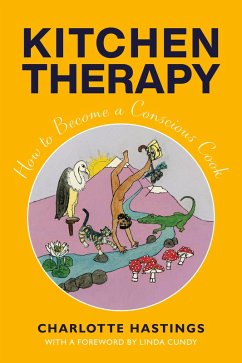Kitchen Therapy explains the rationale behind the use of food - cooking and eating it - as a therapeutic endeavour. Rather than focusing on physical nutrition, Kitchen Therapy directs attention onto the way we feed ourselves within social and nurturing environments, using the cooking process to understand ourselves and build a healthier, more integrated future, together. In a mechanised, materialistic world focused on what we can measure, this presents a return to the kitchen as a place of creativity, of nurture and connection, a place where one can listen and respond to the needs of the psyche.
This book is for anyone interested in creative, accessible, relevant, inclusive self-development, and edible spirituality that you can practise in a kitchen near you. Practitioners in the helping professions will find ideas for self-care, community and client practice, with useful material for creative therapy and attachment courses.
This book is for anyone interested in creative, accessible, relevant, inclusive self-development, and edible spirituality that you can practise in a kitchen near you. Practitioners in the helping professions will find ideas for self-care, community and client practice, with useful material for creative therapy and attachment courses.
Dieser Download kann aus rechtlichen Gründen nur mit Rechnungsadresse in A, D ausgeliefert werden.


